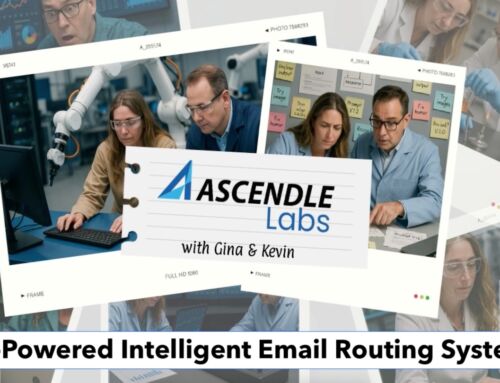Despite a dip in global Merger and Acquisition (M&A) activity in 2023, niche sectors like healthcare remained a hub of private equity (PE) deal activity, reaching $60 billion in announced deal value. Clean energy and logistics are also seeing rising interest, with global clean energy investment increasing 17% in 2023 and a projected 4-6% compound annual growth rate (CAGR) in logistics over the next eight years.
These markets offer what traditional sectors can’t: higher margins, less competition, and longer-term returns. PE firms with foresight know this is where the real growth is and they’re tapping into them early.
What’s driving this shift? Technology. AI, automation, and software solutions are redefining industries and driving innovation. PE investors who get this and move early are positioning themselves for serious long-term growth.
These sectors aren’t just the future of M&A—they’re the future of business.
Beyond the Mainstream: The Shift in Merger and Acquisition Strategies
The beauty of these niche industries isn’t just their growth potential; it’s their ability to leverage technology to drive that growth. Take healthcare. AI-driven diagnostics and digital health platforms are improving patient outcomes and transforming hospital operations. For PE investors, this is the sweet spot: innovation that’s both scalable and profitable.
In clean energy, the shift toward sustainability presents huge opportunities. Companies using AI and smart grid technologies are managing renewable energy operations far more efficiently. And with less competition compared to mature industries, now is the time for PE firms to move in.
Then there’s logistics, where smaller players haven’t fully adopted AI or automation yet. This is where PE firms win. Acquire these companies, modernize, and unlock serious long-term returns in an industry where efficiency is everything.
If you’re moving quickly, these niche sectors offer something rare: first-mover advantages in high-growth markets while the competition plays catch-up.
Identifying High-Impact Niche Investment Opportunities
So, how do you spot the best opportunities in these niche markets? Focus on these three factors:
- A Proven User Base: You want companies with a loyal, established customer base. It’s instant market validation. No guesswork, just proof of real demand.
- Scalable Product Roadmap: Don’t invest solely in how a company is doing today. Look for a forward-looking roadmap; one that’s built to adapt to future trends like AI, automation, and digital platforms.
- Scalable Technology: Focus on companies actively modernizing their infrastructure, whether automating supply chains or integrating smart grid tech. These companies are positioned to drive strong returns.
But spotting the right company isn’t enough. Know your acquisition’s strategic goal. Whether you’re scaling its existing strengths, deconstructing for valuable assets, or eliminating a competitor, knowing your goal provides clarity that helps refine your post-acquisition strategy.
Navigating the Challenges: From Legacy Systems to Post-Merger Consulting
Niche markets hold incredible potential, but they come with a few challenges. Get ahead of these, and you’ll set yourself up for long-term success. Here’s what to tackle:
- Legacy Technology Systems: Many niche companies are stuck with outdated systems that can’t scale for modern demands. You can’t just patch these up. You need a clear roadmap that aligns tech upgrades with your product strategy and improves customer outcomes
- Talent Retention: Losing top talent post-acquisition is a huge risk. These employees have the institutional knowledge to make the integration successful. Keeping them is non-negotiable if you want an uncomplicated transition from old systems to new technologies.
- Operational Disruption: Modernizing with AI and automation is great, but do it wrong, and you’ll disrupt day-to-day operations. A well-thought-out, phased transition ensures you don’t grind operations to a halt or confuse your customers.
- Post-Merger Strategy: Tech is only part of the equation. Your post-merger strategy must rethink the product-market fit and how you’ll position the company post-acquisition. Ignore this, and you’ll limit the deal’s long-term value.
Address these challenges up front to reduce risk, facilitate a fluid tech transition, and set yourself up for sustained success in niche markets.
Building Trust and Driving Change in Acquired Companies
Integrating a newly acquired company, especially with new tech, is a balancing act. The key to success? Understanding the company’s culture and operations. You can’t force change from the top down. Transparency and collaboration are essential. Employees need to know why things are changing and how they benefit.
A thorough product roadmap analysis is critical here. Leadership needs to understand what works, what doesn’t, and where tech can drive improvements without disrupting core operations. Working closely with the existing team ensures frictionless integration and uncovers opportunities for innovation.
Clear communication is everything. When employees see how AI or automation makes their jobs easier, they’ll jump on board. That kind of buy-in is essential for seamless adoption and long-term success.
Tech as a Catalyst: Merger and Acquisition Examples in Niche Markets
Technology is the engine driving growth across sectors like healthcare, clean energy, and logistics. Here’s how AI, automation, and IoT are transforming these high-growth markets.
- Healthcare: In 2023, Evernorth Health Services acquired Bright.MD to boost MDLIVE’s virtual care platform. Now, patients can start treatment on demand by completing a digital clinical interview that generates a chart for clinician review, speeding up access to care.
- Clean Energy: Accenture’s acquisition of BOSLAN in August 2024 strengthened its role in Europe’s energy transition. BOSLAN’s expertise in technology-driven energy projects aligns perfectly with Accenture’s goals. By integrating AI and digital tech into asset lifecycle management, Accenture is positioning itself as a leader in sustainable energy.
- Logistics: DSV’s acquisition of DB Schenker in September 2024 made them the largest freight forwarding company globally. DB Schenker’s strong focus on AI solutions including their Enterprise Information Management Platform positions them for scalable, cost-efficient growth.
In each case, technology is driving long-term value creation. PE firms that integrate advanced tech are setting themselves up to generate new revenue streams and improve operational performance.
Shaping the Future of M&A: Why Strategic Partnerships Are the Key to Growth
Chasing saturated markets won’t get you where you need to be. The real growth is happening in niche sectors like clean energy, logistics, and healthcare, where you find higher margins, less competition, and real scalability. Focusing on tech integration and long-term value creation positions your PE firm for sustained success.
The key is embracing modernization through tech-enabled partnerships. Strategic collaboration builds sustainable value streams that keep your portfolio resilient in the face of market disruptions.
Ready to take your post-acquisition strategy to the next level? Let’s talk about how Ascendle can help you modernize your portfolio and stay ahead in today’s fast-moving market.






